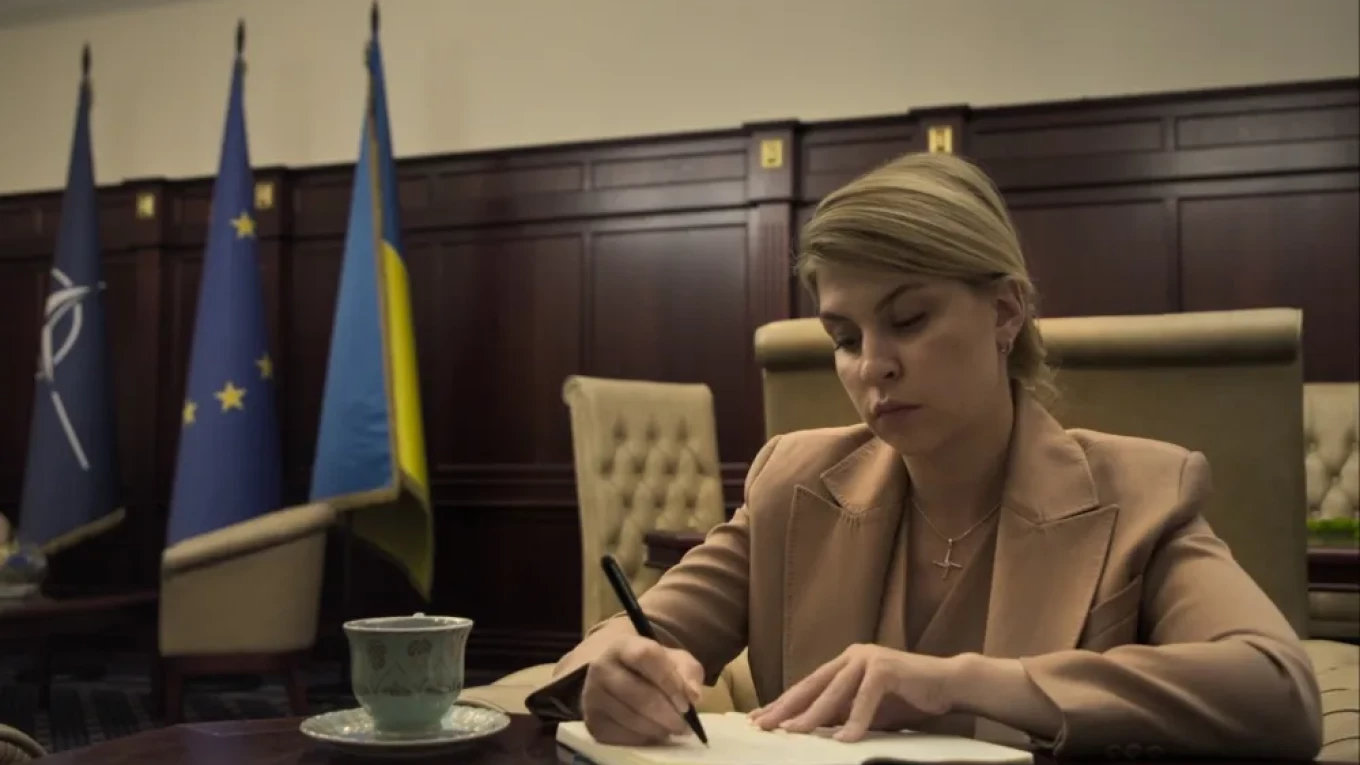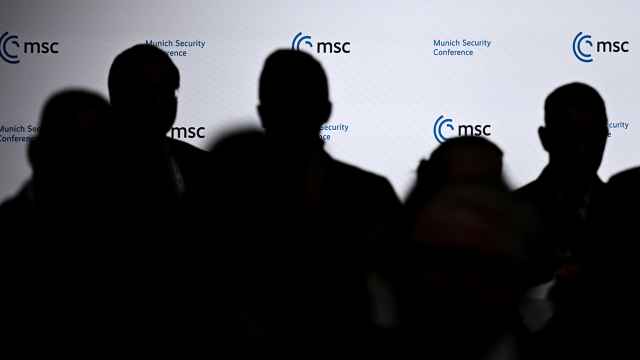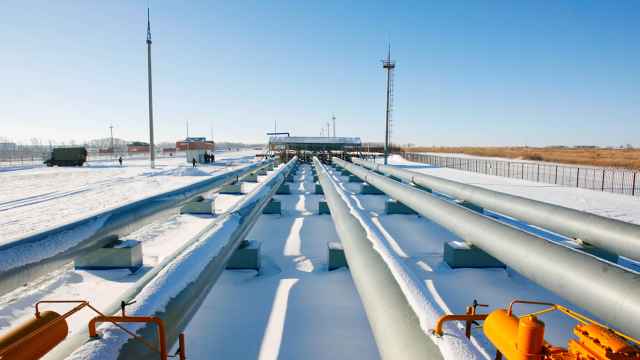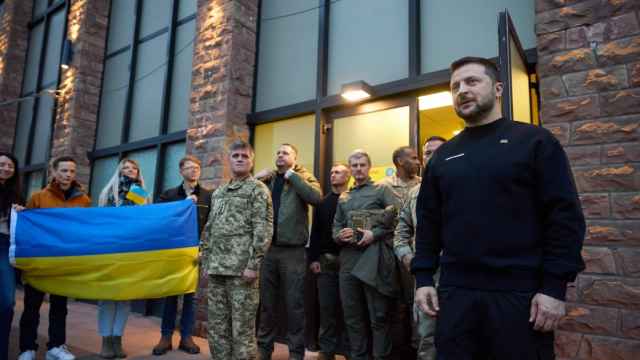Viktor Nordenskiöld’s “The Eukrainian,” a documentary about Ukraine’s quest for European Union membership, uses the bloc’s diplomatic negotiations and bureaucracy as the backdrop for a story with life-or-death consequences.
The film follows Olha Stefanishyna, Ukraine’s deputy prime minister for European and Euro-Atlantic integration and a working mother, as she navigates political roadblocks and leads Kyiv’s efforts to cement itself as part of modern Europe.
“When I met her, I felt [Stefanishyna] was the person in whom I could embody this very complicated story,” Nordenskiöld said on the sidelines of the film’s Stockholm premiere. “An important political moment is preserved through this film.”
Set mostly in offices, corridors and a chauffeured car between meetings with EU member states, the roughly 90-minute film is a procedural that hones in on the discussions in Brussels over the steps required for Ukraine to join the bloc.
Ukraine requested immediate entry into the EU four days after Russia’s full-scale invasion. Filmed from 2022 to 2024, the documentary culminates in the riveting affirmative vote of June 2022 that granted Ukraine EU candidate status.
The camera features prolonged close-up shots framing Stefanishyna’s face in muted color, giving viewers intimate access to the physical and emotional repercussions of the minister’s labor in service of her country.
Like many Ukrainian government officials, the minister is young and driven by the prospect of leaving a stronger, independent country to the next generation.
But in the meantime, everyone needs to make sacrifices, including Stefanishyna’s children, who see their mother far less than they would in peacetime as she toils for long days far away. Stefanishyna sent her son and daughter overseas immediately after Russia’s initial attack due to safety concerns.
“I’m closing my eyes and dreaming of the time when I can be free in a country without a war. Of course, there are a lot of dreams,” Stefanishyna acknowledges in the film.
Those who have worked with Swedish director Nordenskiöld say he has a knack for making himself invisible to the subjects he is filming. In her words, Stefanishyna jokingly says the director “tricked her” into making a film from which she initially shied away.
“When she saw the film, she was of course a bit terrified to see her face, like, this big. But then she was crying,” said Nordenskiöld, whose film credits include a documentary about Sweden’s policy during the Covid-19 pandemic.
Nordenskiöld has a long-standing interest in Russia, having traveled and worked in the former Soviet Union. He is in the early stages of another documentary on the war’s environmental impact on Ukraine.
“The Eukrainian” premiered at the Copenhagen International Documentary Film Festival this year. It has been shown at cinemas and special screenings in Sweden, Mexico and at the Budapest International Documentary Film Festival (BIDF). It will be screened at the Brussels International Film Festival on June 25.
Cinema, television and film festival audiences in France, Germany, the Netherlands, Switzerland, Norway, Georgia and Moldova will be able to see “The Eukrainian” in the months ahead. Russian audiences, however, will have a harder time, at least for now.
A Message from The Moscow Times:
Dear readers,
We are facing unprecedented challenges. Russia's Prosecutor General's Office has designated The Moscow Times as an "undesirable" organization, criminalizing our work and putting our staff at risk of prosecution. This follows our earlier unjust labeling as a "foreign agent."
These actions are direct attempts to silence independent journalism in Russia. The authorities claim our work "discredits the decisions of the Russian leadership." We see things differently: we strive to provide accurate, unbiased reporting on Russia.
We, the journalists of The Moscow Times, refuse to be silenced. But to continue our work, we need your help.
Your support, no matter how small, makes a world of difference. If you can, please support us monthly starting from just $2. It's quick to set up, and every contribution makes a significant impact.
By supporting The Moscow Times, you're defending open, independent journalism in the face of repression. Thank you for standing with us.
Remind me later.







